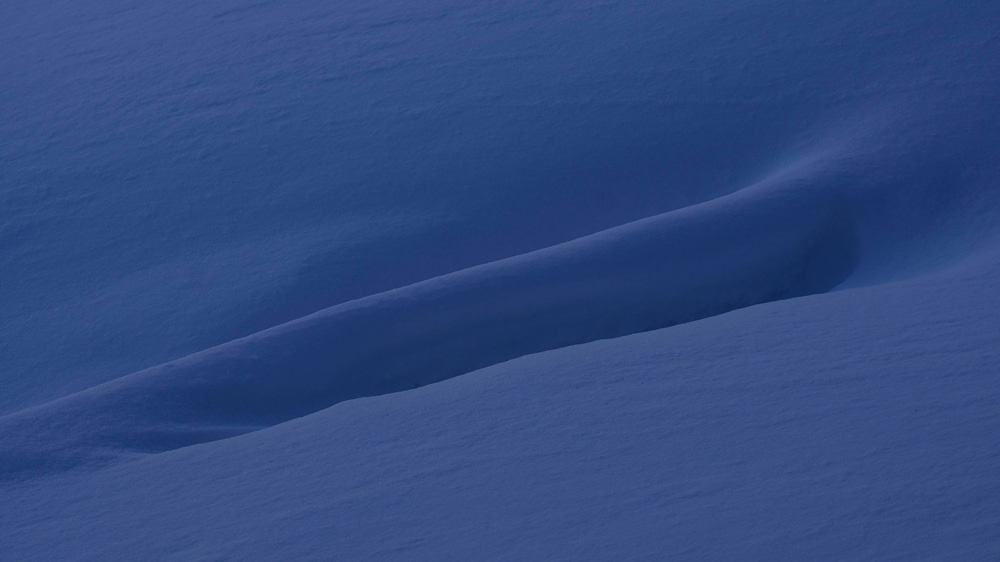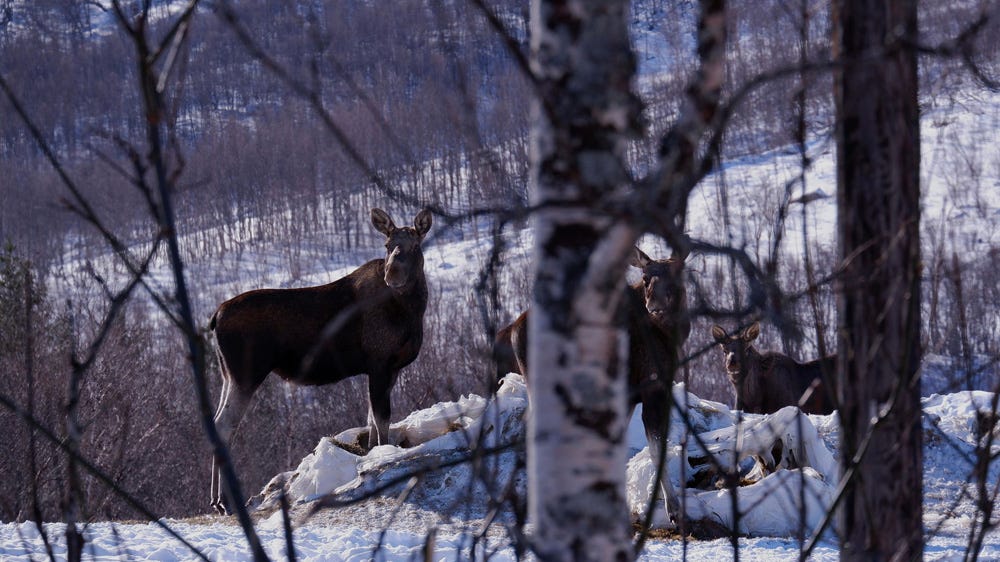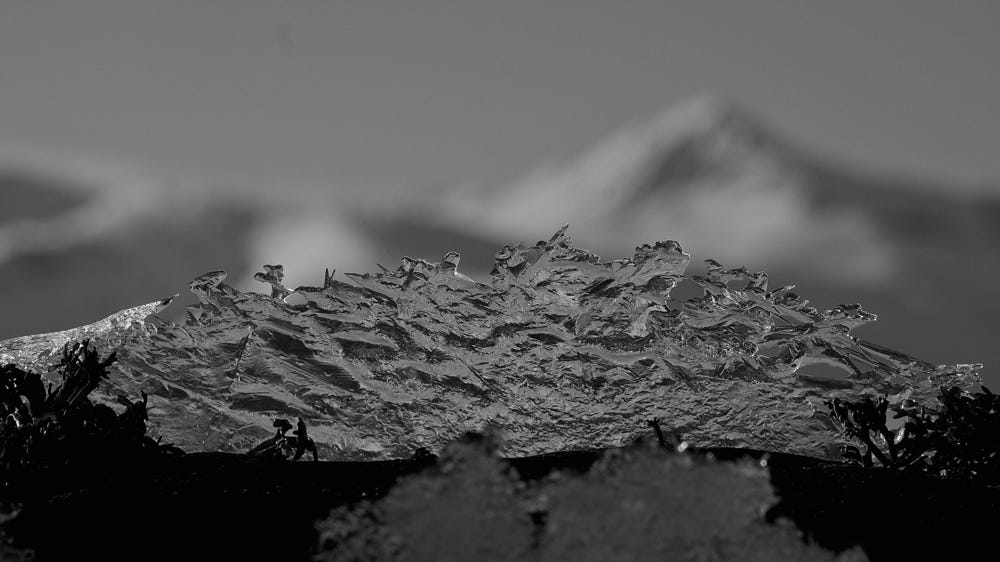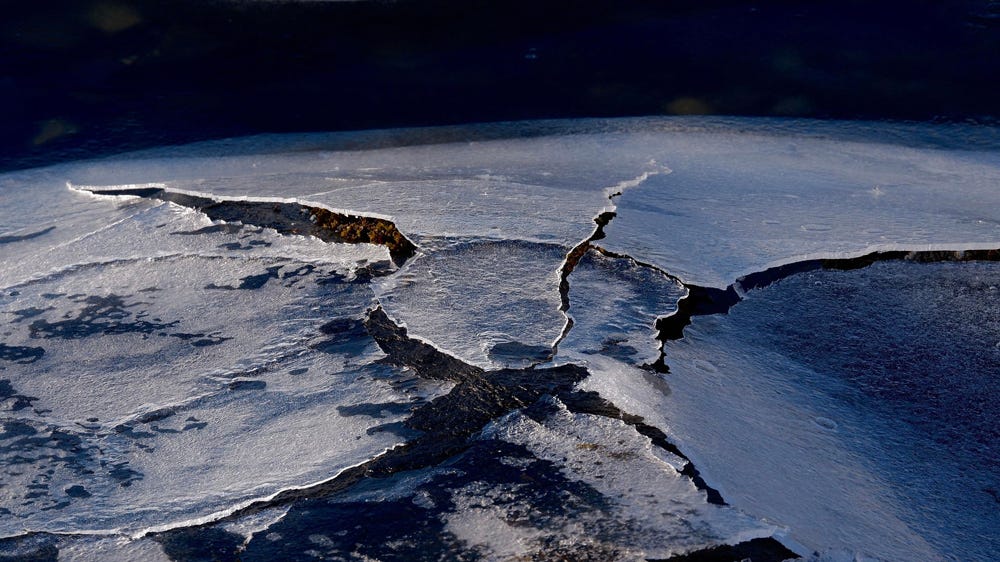March: The Rusted Wheel of Things
We are not under a spell. It is simply winter. And winter will end.
So braver notes the storm-cock sings
To start the rusted wheel of things,
And brutes in field and brutes in pen
Leap that the world goes round again.
-A E Housman
On March 1st, while waiting beside our mailbox for the eight o’clock school bus to arrive, my youngest son and I noticed tiny buds on the tips of the trees that front our property. They looked like spring, these buds. These packets of green bundled into woody husks like half popped pieces of popcorn will become leaves in another couple of months, and not long after that, they will become summer. Although not as striking as the first touch of the February sun, we were happy to see these early buds. They reminded us that the year really is turning. The days really are getting longer. And winter will eventually end.
I suppose that most of us need moments when our lives are affirmed by ordinary recognition. Signs of the seasons and weather, the face of a friend in a crowd, the handwriting of a love, or a thousand other here and there pieces of our plain lives, all can become our memories. As my favorite book, The Wind in the Willows, reminds us, we could use “a goodly store of them.” So it was on March 6th that the moon rose spectacularly over the mountains east of where I live. It rose, too, over hills of newly fallen snow. The snow had arrived on a Saturday. Now a couple of weeks later, the snow is deep enough that our mailbox is buried. To think that my son and I had been brightened by the sight of tree buds. The despair, which we had avoided in February, may find us after all. Our landscape could be another Narnia under the spell of a White Witch. Snow and more snow. Cold and more cold. Except we are not under a spell. It is simply winter, and in the far north winter simply lasts longer.
Despite the return of more snow and more cold, there are intimacies to be discovered. There are lines and hollows in the snow that suggest a sensuality, a liquid desire of want. There are drifts that look like waves, frozen just as they are about to break. Or go for a walk or a ski and you will see animal tracks peppering the snow. A week ago, while crossing the kitchen to rinse a coffee mug, I spotted out of the corner of my eye any number of moose. Turns out there were four of them. I crept back to the window for another peek, and our suspicions were confirmed. Moose do cross the yard in the daytime. Or, from the perspective of the moose, two legged creatures do live inside those boxes of light.
But on another day, on another morning I will open the front door to look outside and see that the front steps, all five or six of them, have vanished. I will say out loud through a half-committed sigh, more snow. The thirty-yard path I had shoveled from the front door to the mailbox will be gone, and I know that I must shovel again. My sense of celebration in the somewhere of where I live will dissolve into an exhausted flop on the couch. Anyone who wants out of the house, who needs to be picked up, to make an appointment, to catch a flight, or who craves Sørlands Salt & Vinegar chips, well, good luck. The shovel is beside the door. All the capital “R” Romantic stares into the middle distance of the sea, the snow, and the mountains can be reduced to those thirty yards of knee-deep snow between the front door and the unshakeable mailbox. Perhaps I had been fooled into thinking that spring—indeed an actual spring—should have come so early.
Locals have told me that in the old days, when our island was covered with trees and the animals were not afraid, the earliest farmers and fishermen and sailors lived exactly here, exactly where I live. They lived here because here is where the sun can be seen the earliest. They lived here, a few hundred meters above the sea, because it is warmer closer to the sea than in the valley and hills just across the road. A road, it is worth mentioning, that did not exist until the 1960’s. What is left of the olden people are mere ruins. You can see their graves. You can see, if you know where to look, the fragile outlines of their dwellings. I need only to imagine them or to feel the sun warming my kitchen window to experience this strange, almost ritualistic tension between the present and some past that none of us can conceive.
Alongside the road here, there are summer hytter and glassy huser filled with multiple television sets and espresso machines. The Tine milk lorry goes rumbling past our house most mornings, with the driver undoubtably grateful, like the rest of us, for the snowplows that run night and day. There are tourists who stop their rental cars in the actual middle of the road to take pictures of reindeer. In the occasions of television sets and tourists, I realize the wide world is never far away, and some of the wide world thrives on the sea. Yesterday, on a walk, we saw four naval ships in the sund across from my house. We were reminded how there have been recent NATO maneuvers along the coast. I was reminded, too, how common it has become to hear people asking, “What will Russia do?” Yes. What will Russia do? What will the United States do? What will any of us do?
In The Wind in the Willows, Mole, who is new to the river, asks the Water Rat what is beyond the Wild Woods. The Rat responds, “That’s something that doesn’t’ matter, either to you or me. I’ve never been there, and I’m never going, or you either, if you’ve got any sense at all.” Many of us have sense enough, but what happens when the Wide World comes to us? I know in a couple of months the snow will begin to melt, and something inside me will miss the snow. As much as I welcome the green and need summer days. Something in me will miss the snow. Advocate all you wish. I would rather hear rumors of whales or throw another stone in the sea. Maybe it will come back one day and still be a stone.
If you prefer to make a one-time donation, you can contribute any amount to Juke using these Venmo and Paypal links.
Damon Falke is the author of, among other works, The Scent of a Thousand Rains, Now at the Uncertain Hour, By Way of Passing, and Koppmoll (film). He lives in northern Norway.









another gem, damon. just so lovely. I have read it three times just to be there for a while longer.
Folks, don't be fooled. Mr. Falke is merely writing exceedingly fine prose in order to continue to publicly shame me because I've never read Wind in the Willows. Every single time we go out for coffee, or catch a game down at the local roller-derby velodrome, or just pick up our slide-whistles and jam for a while, it's Wind in the Willows this and Wind in the Willows that. NON. STOP. Mr. Falke, I demand this micro-aggression cease. I have ordered the book.